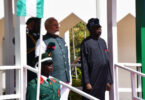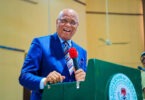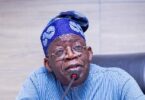A United States appeal court has dealt a blow to Nigeria’s efforts to overturn a $70 million arbitration award, ruling in favour of a Chinese firm seeking to enforce the award against the Nigerian government.... CLICK TO READ THE FULL NEWS HERE▶▶
In a majority verdict delivered on August 9, the US appeal court upheld the judgment of a US District Court for the District of Columbia, affirming that the arbitration award is enforceable.
The Chinese firm, Zhongshan Fucheng Industrial Investment Co. Ltd, has been granted final charging orders over two residential properties owned by Nigeria to satisfy the $70 million award.
This latest development worsens a crisis that the Nigerian government has been trying to manage in Europe, where a French court had earlier authorized the seizure of three Nigerian presidential jets due to the ongoing dispute between Zhongshan and the Ogun State government.

The dispute began in 2010 when Zhongshan Fucheng acquired rights to develop a free trade zone in Ogun State, Nigeria. However, in 2016, Zhongshan accused the Ogun state government of attempting to terminate its appointment and install a new manager for the free trade zone, leading to an investment treaty arbitration against Nigeria.
The arbitrators ruled in favour of Zhongshan, awarding approximately $70 million in compensation, which Nigeria has failed to pay, leading to enforcement action in the US courts.
The US appeal court’s majority judgment held that the final arbitration award is enforceable under the New York Convention, stripping Nigeria of its sovereign immunity in the arbitration award case.
The majority judgment reads: “For the foregoing reasons, we hold that the final award is enforceable under the New York convention because it arose out of differences between ‘persons’ that share a legal, commercial relationship.
“The district court therefore has jurisdiction over this case under the FSIA’s arbitration exception. The judgment of the district court is affirmed.”
However, the dissenting judgment argued that the New York Convention did not intend to include sovereign nations in its definition of “persons” with legal commercial relationships.











